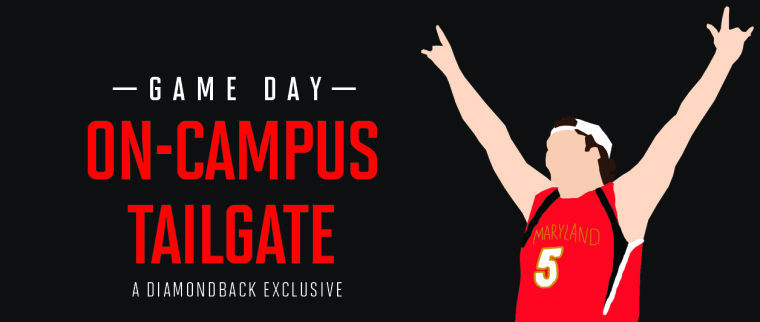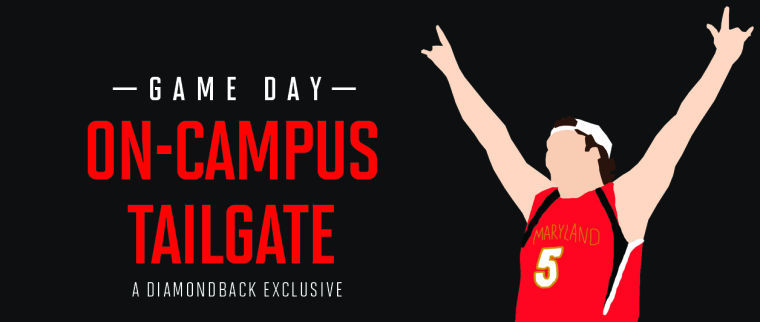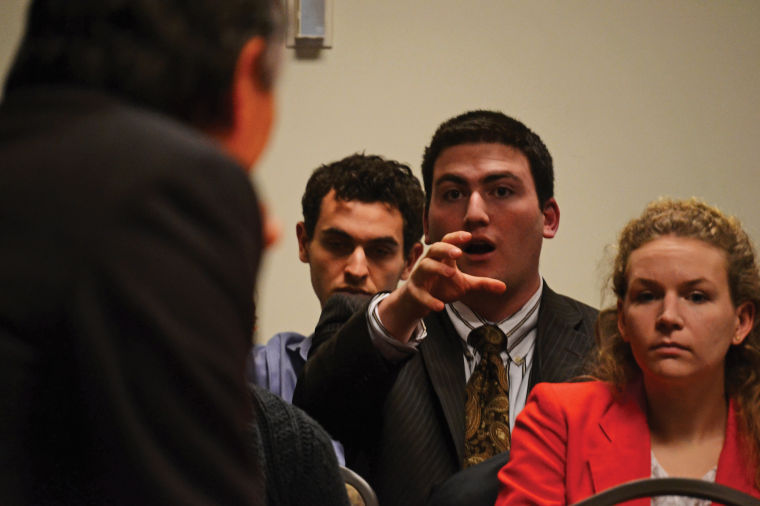After nine months of planning, a joint SGA and Interfraternity Council effort for an on-campus tailgate is coming together.
The university’s first on-campus, school-supported tailgate will take place Saturday before the football game against the University of Virginia. And if it’s successful, student leaders said it could usher in a new era of school spirit and positive neighborhood relations.
“A lot of schools have a really robust tailgating tradition, and we want to bring that tradition to Maryland,” said Josh Ratner, Student Government Association student affairs vice president. “We want this to be a massive tradition that’ll go on from year to year.”
The idea to move tailgating onto the campus came out of suggestions from the College Park City Council’s Neighborhood Stabilization and Quality of Life Workgroup, which convened to explore ways in which students and permanent city residents could work together to improve the community. One common complaint from residents was about loud and boisterous student partying, both at night and during the day at the university fraternities’ large-scale tailgates.
IFC and SGA representatives in the group seized the idea of tailgating on the campus, hoping that students celebrating on the campus would be less likely to disturb or vandalize the North College Park community, where many tailgating events have previously been held.
The event this weekend is essentially a test drive of their plan, so it will be exclusive to IFC members and their guests, said Michael Sikorski. Greek life’s existing infrastructure made it easier to adopt the plan to that smaller group than the general student body, but if all goes well, future events will be open to all students.
“If we can get it to work with Greek life, we absolutely certainly can look to getting this model to work for all students,” Sikorski said.
Greek life has the benefit of established policies and penalties under their Social Events Monitoring program. They can troubleshoot rules and procedures now with the hope that future events will run more smoothly.
“This is really important to prove that Greek life can take responsibility and that we can have responsible tailgating,” SGA President Samantha Zwerling said. “It will really improve participation.”
The fire marshal, Department of Public Safety and police department settled on a 2,500 person maximum for this event. But, Sikorski said, they don’t expect to exceed that limit or come close. Only IFC members and guests with one of about 2,400 available wristbands will be allowed in the tailgate perimeter, and it’s unlikely everyone with a wristband will be within the perimeter at any one time.
The Department of Transportation Services also agreed to expand and reroute game-day bus services to accommodate the event, and the IFC paid for two extra charter buses to run the route between Norwich Road and Comcast Center.
As Ratner and Sikorski got in touch with nearly a dozen organizations and campus departments, including University Police and athletic department officials, interest and momentum grew.
Campus police liked the idea of students gathering in a controlled environment on the campus, which would allow them to maximize safety. And as the university prepares for the move to the Big Ten, the athletic department was attracted to the idea of moving students closer to the game, where they might be less likely to choose a full day of drinking over attending the game itself, Sikorksi said.
Attendees who bring alcohol to the event will be responsible for ensuring it’s used safely and legally, Sikorski said.
“This isn’t a party,” Sikorsi underlined. “It’s a culture change … we’re trying to make a space that is safe, that has all the amenities you’d expect … [and] create the opportunity for our members to demonstrate they’re responsible.”
Many of the departments involved in planning the event donated their resources and time, so the exact cost of the whole event is difficult to pin down. Facilities Management donated dumpsters and trashcans, for example, and Dining Services donated 50 cases of bottled water. The IFC will pay between $2,000 and $3,000 for this event from chapter dues. But, Sikorski said, if this event is successful and more are held in the future, it’s likely that cost will rise.
“There has been awesome support all across the board to get this first one done,” Sikorski said. “If you added up the total value, it’d be a substantial amount, but because they all really want it to happen, they’re being flexible.”
Involving almost a dozen departments in such a large project led to a long, drawn-out process with all kinds of roadblocks. The IFC spent hours poring over each fraternity’s policies to make sure they lined up with the plans for the tailgate and making sure the event complied with local laws.
The biggest challenge by far, Sikorski said, was finding a space big enough that would meet their requirements. With dozens of issues such as capacity and entry points to consider, they spent nearly five months striking potential spaces off a list until the athletic department suggested the practice field south of Comcast Center. As soon as university student affairs vice president Linda Clement signed off, everything started to come together.
“It’s a win for everyone,” University Police Chief David Mitchell said. “It’s a win for the city of College Park.”
Josh Ratner, SGA city council liaison, used results from a referendum on the 2012 election ballot to show students wanted to bring back The Collegiate Readership Program. Starting next semester, students will be able to pick up free copies of The Washington Post and The New York Times on the campus.





